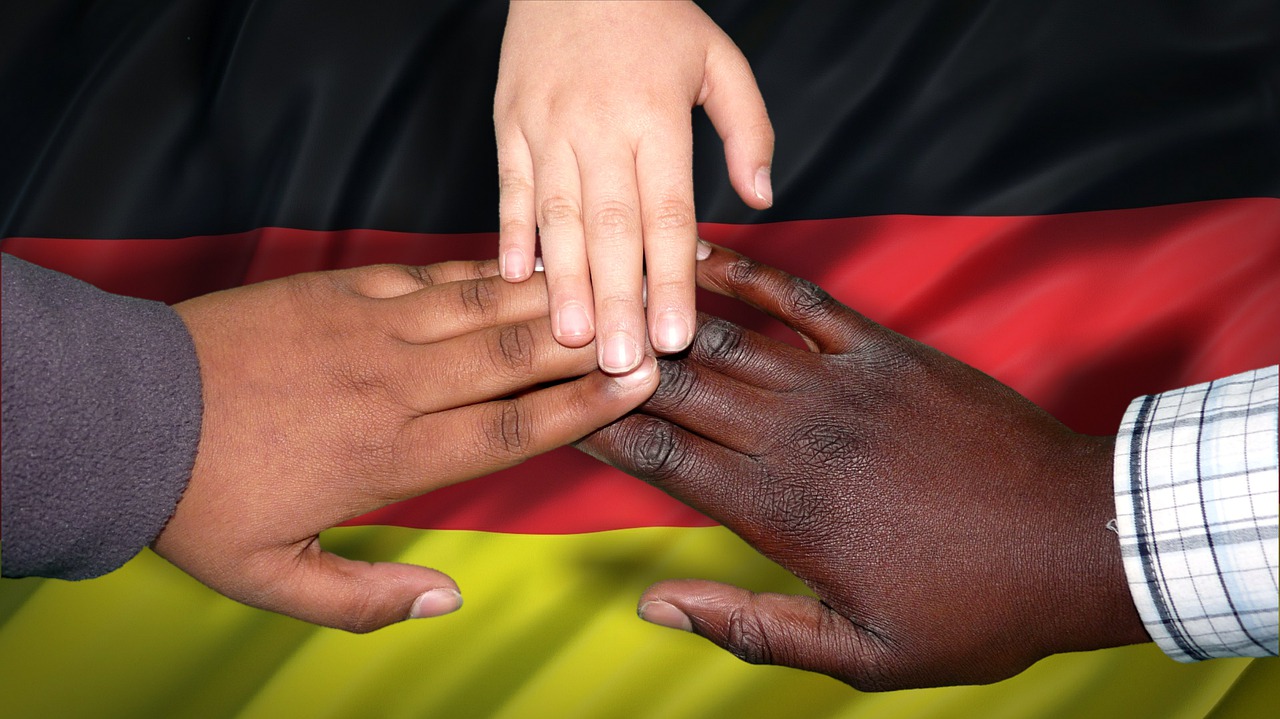Bitnation: Pangea - a tangible App for world citizens
People can freely choose their preferable political & legal status!
Interview with the Ambassador Erik Voltstädt: “break the paradigm with code”
Pursuing citizens’ independence, Bitnation launched “Pangea”, a tangible App for world citizens of a virtual nation.
It was so important to learn more about, that we asked to interview the Ambassador Erik Voltstädt, who explains how people are now able to: “breake the paradigm with code”
And? the most recommended place to record the video?
https://www.youtube.com/watch?time_continue=3&v=kJXKR3HYD5c
As I’m sure you will agree, it is the Acropolis — as a homage to the Democracy, born in Athens, 2.500 years earlier.
Annita: Hi Erik! Welcome in Greece! So, what is the broader vision behind Bitnation?
Erik: I would say the broader vision of Bitnation is that some people can opt into voluntary governance services independently from where they happened to be born, because we know that there's a huge geographic apartheid in the world, because people who are born in Bangladesh have bad passports. They cannot get the financial markets and financial systems like we have in Europe. They might not be able to start their own companies then that might not be able to get the proper health insurance. They might not be able to even make secure agreements because maybe they live in a corrupt administration. So what we offer or what we want to provide with, Bitnation, in the future is for people to be able to choose from different codes of raw, that they can choose from our Pangea APP, where can be competing governance, DAPPS, applications that are based on blockchain, to basically access governance services from anywhere in the world.
Beyond local jurisdictions
Erik: So like, even with digital nomads who travel all over the world, or if you live in a small village somewhere in Ghana, you should be able to properly certify for example your land property, or to make a marriage, a marriage contract as a gay couple in Iran, even though it's completely illegal in the place where you live because you can have a voluntary agreements that are independent from the nation state where you have to be born. And that's the very idea that you can opt out and experiment with new systems that were never possible before.
The Pangea App and the PAT Token
Annita: On what stage of completion is now the project?
Erik: Right now the public sale, is online. We are selling a token called PAT, which is the Pangea Arbitration Token. A minimum viable product is available, which is the Pangea APP. Right now you can see a demo version of this and in the Google play store. The idea is to show that we are able to deliver a really working tangible product and service. And that's, we're not just an empty promise like the rest of the ICOs. So, we created not only the APP and the software, but we're also, launching meetups and engaging communities, all over the world. I personally am the ambassador of Bitnation and I’m overseeing ambassadors at three continents at the moment in Latin America, Africa and Europe. The idea is really to have a global movement of world citizens who-opt out from the system and use this peer2peer voluntary governance network.
Currently we are on our way. We already had the pre-sale and earned about $3,000,000 to fund some of the developments of the APP and to be able to provide a functioning service in the meantime. Now for the public sale, the aim or the goal is to raise $30,000,000 in PAT tokens. And so we're looking for investors from everywhere in the world. Like anyone can invest now in the public sale, there's no say minimum investment.
Bitnation refugee blockchain ID
We already had many things in the past. We didn't come out of nowhere. We already, in the last three and a half years, we had, for example, the Bitnation refugee emergency response, where we have the refugees with blockchain ID’s, for example, stateless refugees who had no passport, no way to, to let's say, identify themselves in front of governments.
This blockchain ID, they could at least have some form of verification and maybe get the renting contract or a bank account. But of course this is more an intermediary stage, but I think it was interesting pioneer project. We had also the collaboration with Estonia for the residency program. This is, it should be where we together build a public notary, and as well, like we had several iterations of Pangea and we're now in 3rd iteration, we are building our own mesh network that works agnostic from blockchains. I think we're quite advanced now in our fourth year of existence. And so, I think we can hope for much more to come now, as after the public sale, a lot more people will start to using.
Annita: What more do you need for people to start using the Pangea App?
Erik: So in general we need to have a really intuitive chat interface. That's what we're aiming to have.
That is, just the way you chat on whatsApp, Viber, facebook, messenger.
That you should be able to use Pangea in the same way that you do not have a complicated platform that does not need to understand the economics and the technology behind that. You should not have to study computer science to be able to use an APP right? So, ideally we will have smart contracts that can be launched from a chat interface and that can even be launched through emoticons. So people all over the world to make use of this. And so initiate smart contract templates to make agreements without, having to be able to be programmers or to code or something like this.
The “resilience” UBI
Annita: Is there a basic income component in this?
Yes, of course we work with Johan Nygren who designed the basic income protocol called “resilience”. And I think it's a really interesting project because the way he designed it based on Ripple, but it's not for banks, for individuals where people can make transactions in a transaction web.
And every time they make transaction they set the voluntary tax. And um, based on the next person will also makes transactions based on how much tax they pay, you automatically get the dividends, which is basically like our basic income, so you can create a positive pyramid scheme where everyone can get more than they pay into and the more like a transaction prolongs the longer it goes. I think it's an interesting aspect because you have these transactions on the blockchain so you can prove that they actually paid taxes. You can use this also for reputation purposes. We can have a better reputation based on how much texts your and it's the sort of critical tax where you could set up an autonomous agents to coordinate these budgets for public purposes, like education, health insurance, and many other things. So you could design the things that the government provides today in a way that's independent from governments and do it in a borderless way worldwide, with the peer to peer network. And this is something that, of course, it's still in the conceptual stage, but, we will have this kind of government tax on top of our platform. So we are basically do it yourself governance that from where everyone can build their own applications to solve governance problems, without having to wait for the system to acknowledge your ideas so you can just act upon your idea and don't wait for permission. And so, like puts agency over voice instead of trying to be heard, you can just go ahead and create your own new parallel system
Annita: So how do you see your role in developing the project?
Erik: Like I said before, I'm the lead ambassador of Bitnation. I oversee the ambassador network. So the idea is that apart from having the virtual blockchains, you also should have a human Block chain of people who trust each other so you can talk to in case you have a problem, to find solutions. And so on the one side we have people like me who represent Bitnation, who meet up, interviews, public media, um, but also like you will have tech ambassadors to help people, for example, in developing countries to understand how to use the APP to translate or to, um, yeah. So show them when they have technical problems have to do to solve the problem. But also we will have diplomatic ambassador network who try to help our citizens when they're in jail, for example, to help them get out of jail or whether they have any sort of legal problems to, how to, solve these based on the legal database of prior cases. And we tried to help our Bitnation citizens also with the existing law system because then we know that there are conflicts with our new model and our new apps and the existing paradigm lets say because it has a, like some confrontative elements in it. So we will need to help our citizens with legal advice and, I'm basically coordinating the more representative part, like the goodwill ambassador to organise meet-ups. And I'm also helping with installations. I'm making new proposal for collaborations and product inquiries and also from time-to-time to investors.
Open source code to break the paradigm
Annita: And the last question is: how can somebody contribute and join the project around the world?
Erik: We need to make it as easy as possible for everyone around the world to contribute because it’s something very new and maybe not everyone knows about blockchain and how to code and all these things. So we have good app contribution guys. We have a very big amount of repositories, some open source code in Github and everything we do will be available for the public and can be copied also for other purposes. I mean you can contribute by, like I said, being an ambassador, doing public representation, organising meet-ups or making collaborations with us, but you can also code as an open source contributor, but you should be, let's say, somewhat knowledgeable already in Java script because it does this kind of programming languages to be able to learn solidity and then to the actual things that we're designing. I hope that from this and other applications we can make it much more easily accessible. That's also people with a normal computer science degree who can be able to contribute. It's not only for people who still like social representation but people who can contribute code. Actually, the idea is really to break the paradigm with computer code.



✅ @annitarose, let me be the first to welcome you to Steemit! Congratulations on making your first post! I gave you a $.02 vote! Would you be so kind as to follow me back in return?